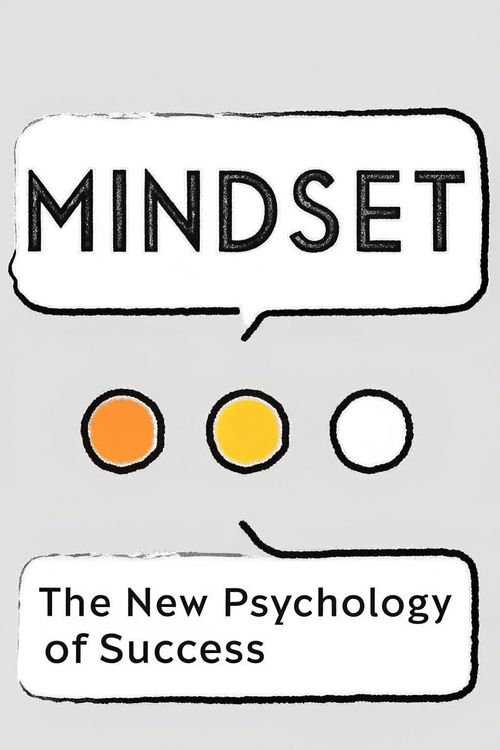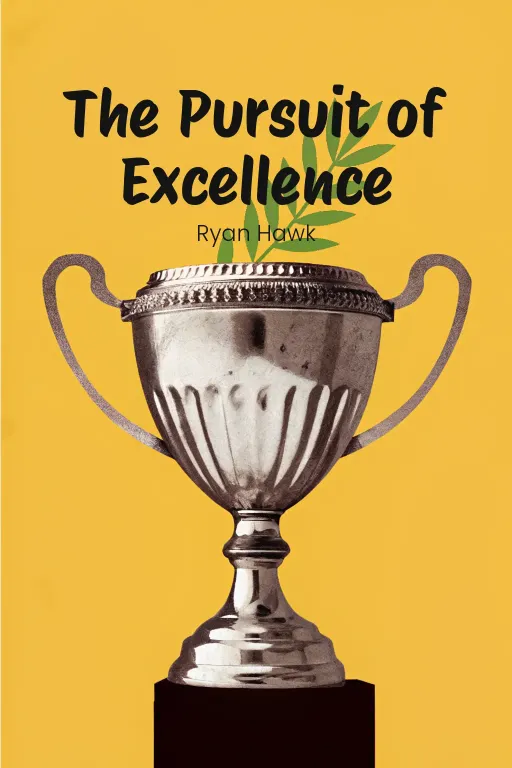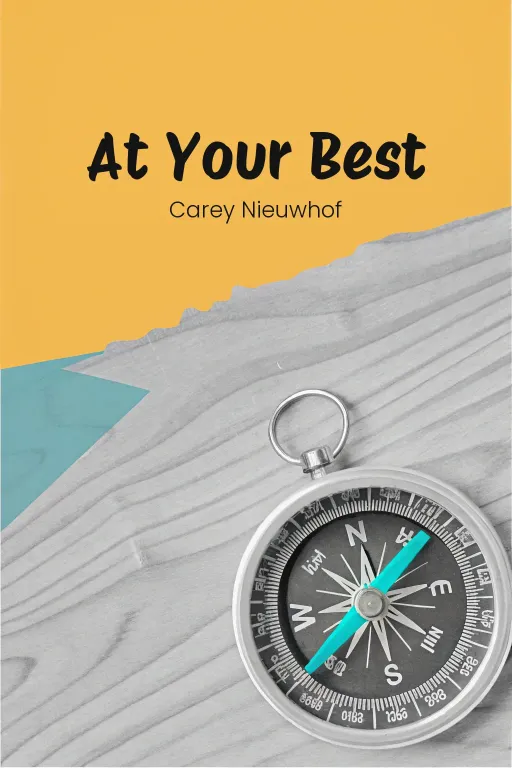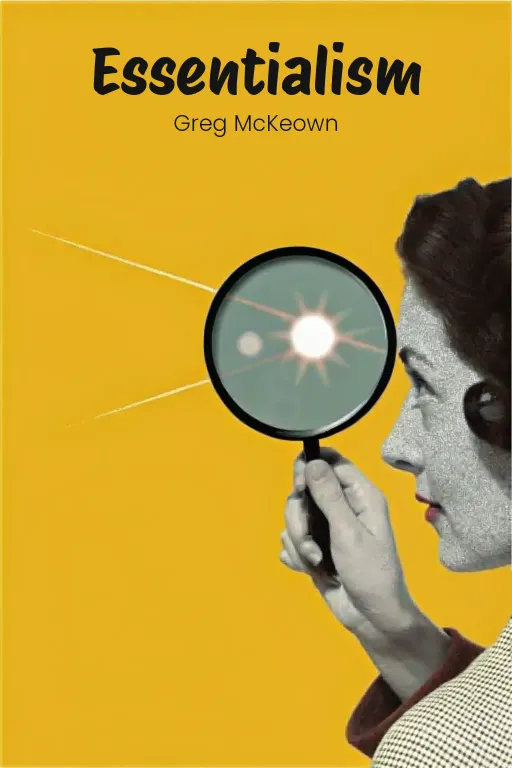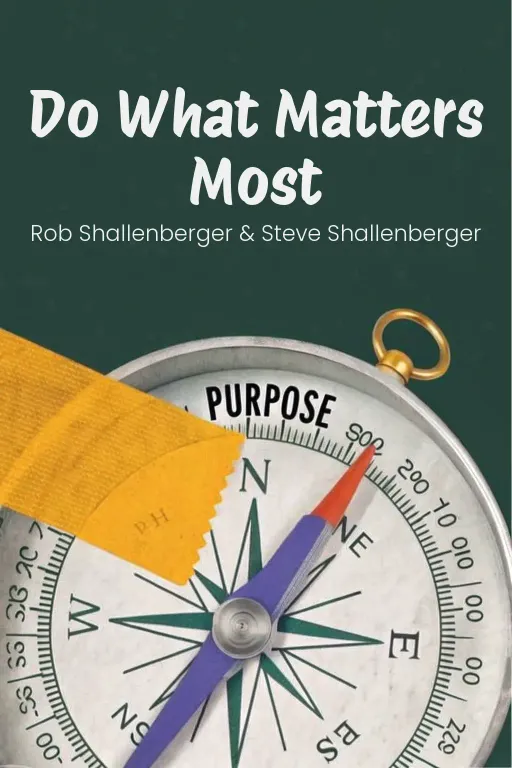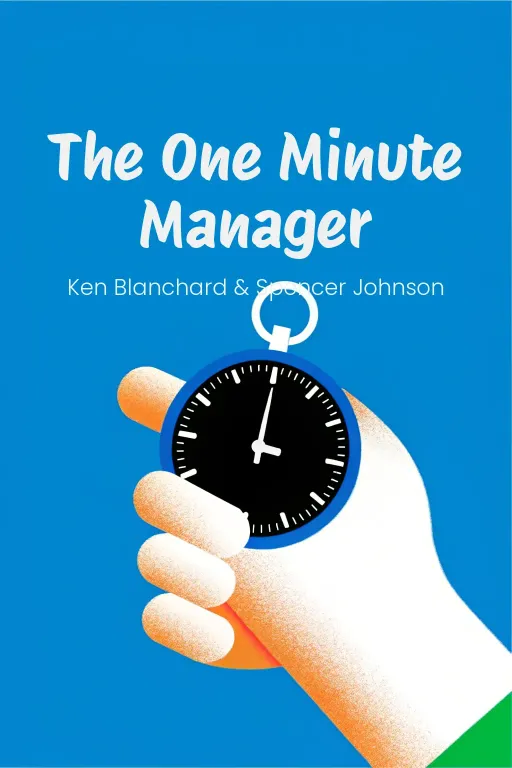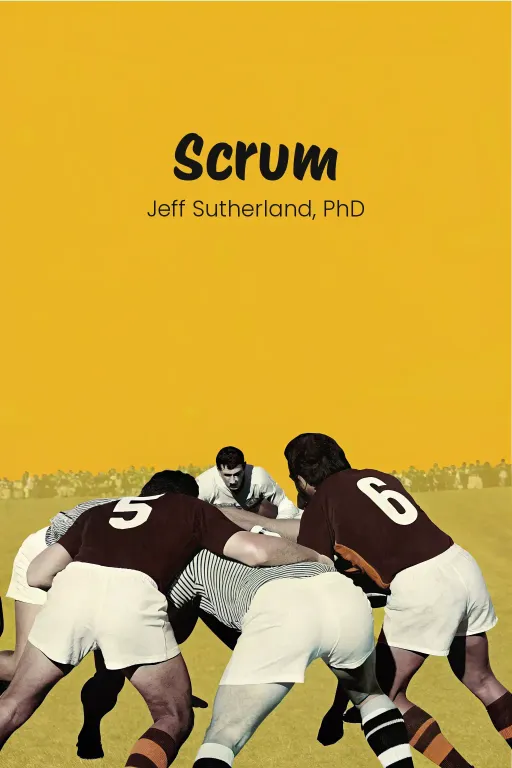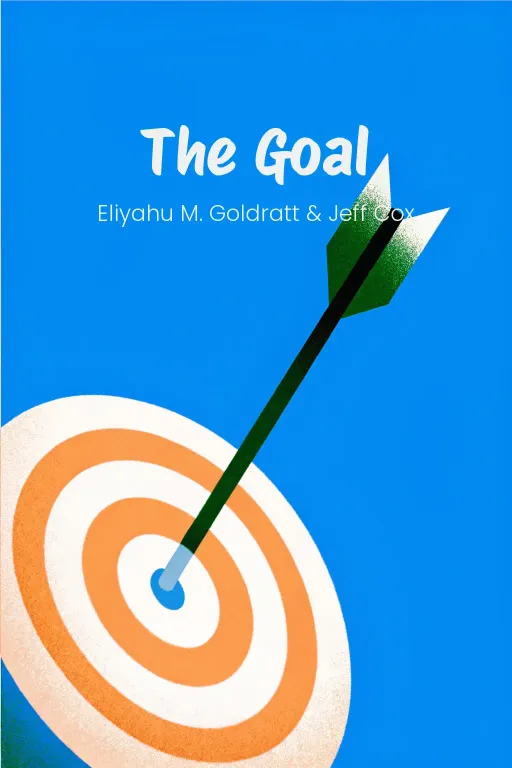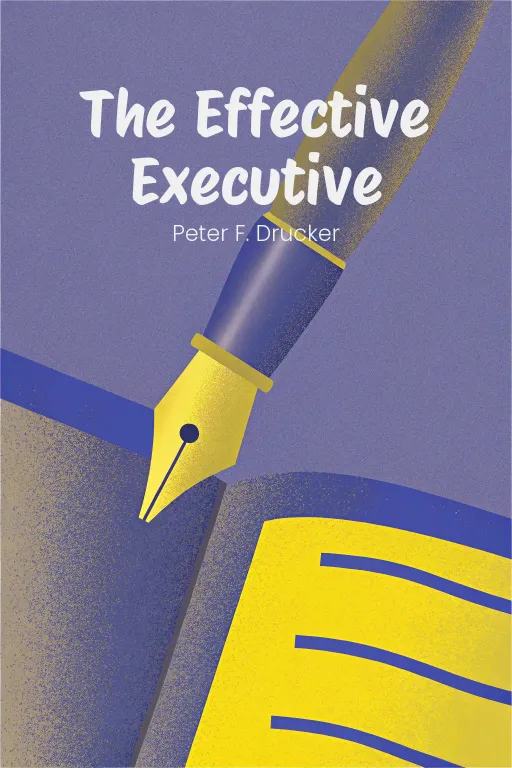
Master Your Day: Reclaim Focus Now!
Podcast by Beta You with Alex and Michelle
Lead with a Vision, Manage with a Plan, Prioritize Your Time
Introduction
Part 1
Alex: Hey everyone, welcome back! Let me start with a quick question: Ever feel like you're just swamped with stuff, but the things that “really” matter keep getting pushed aside? If that sounds familiar, you're definitely not the only one. Michelle: Seriously! It's like being on a treadmill – you're working hard, but are you actually making progress? Alex, please tell me today's topic offers a solution to this never-ending chaos. Alex: Absolutely, Michelle! Today, we're digging into some game-changing ideas from the book Do What Matters Most. It's all about taking back your time and energy by concentrating on what truly counts. The authors outline three key habits – crafting a personal vision, clarifying your various roles and setting SMART goals, and the super effective pre-week planning – that can help you move from constantly reacting to situations to living much more intentionally. Michelle: So, no more jumping from task to task, hoping something sticks, right? Sounds like putting your life on a course, with purpose. Alex: Precisely! Here’s what we’re going to unpack today. First, what kind of mindset shift do we need to escape that feeling of being overwhelmed and start living more proactively? Then, we'll dive deep into those three core habits – your vision, your roles and goals, and that week-planning strategy that can be a total game-changer. Finally, we’ll share concrete steps that'll make these ideas actually work in your life – not just abstract concepts, but real tools you can use every day to transform how you live. Michelle: Ok, sounds like creating a personal roadmap. Everyone, buckle up – this might be the key to finally taking control. Let's see if by the end of this I'm actually convinced.
The Do What Matters Most Mindset and Principles
Part 2
Alex: Okay, so let's dive into the "Do What Matters Most" mindset. I think this is really crucial. It's all about consciously switching from just reacting to things as they come, to actively focusing on what truly matters in your life. And you know, it's not just about getting more done; it's about creating a life that feels meaningful and fulfilling. Michelle: "Actively focusing" sounds great and all, right? But if we're being honest, most people are drowning in emails, meetings, and errands. So, where's the space for this profound, intentional alignment you're talking about? Alex: That's the whole point! The book points out that many of us are on autopilot, constantly responding to whatever grabs our attention at that moment. And the result? We end up putting urgent, but ultimately unimportant, things first, ahead of what's genuinely important. They call it "task saturation". Michelle: Task saturation... sounds like a fancy way of saying you're doing too much of everything and not enough of what actually “matters.” Alex: Exactly. Imagine a pilot ignoring the main flight instruments because they're distracted by a bunch of minor alerts. "Task saturation" scatters our focus, making it really hard to zero in on what's important. The authors suggest taking a step back and asking ourselves those key questions again: "What do I value most?" and "What do I truly want to achieve?". Michelle: Okay, but answering those questions feels... huge. It's like opening a door to a lot of existential questions. Tell me about Amy's story in the book regarding this. She was that overwhelmed professional who always felt like she was behind on everything, right? How did she go from feeling chaotic to feeling clear and in control? Alex: Right! Amy was totally stuck in that loop—always busy, but rarely accomplishing anything truly meaningful. Her turning point was when she really thought about her core values. She realized that what she was doing wasn’t matching up with what she wanted to achieve, both at work and in her personal life. Once she knew what mattered most, she painted a clear picture for her life and started setting specific goals related to her various roles. Michelle: So, her energy shifted from putting out fires to... building something bigger, something she actually cared about? Alex: Exactly! That clarity allowed her not just to plan better, but to act with intention every day. It's the difference between just surviving the day versus building towards the future you want. And that's where discipline and focus come in. Discipline helps you stay on track despite distractions, and focus helps make sure you're putting your energy into tasks that align with your overall vision. Michelle: Discipline and focus... sounds a bit intense. Does every day have to feel like some kind of boot camp for this to actually work? Alex: Not at all! Think of it as creating a rhythm for yourself, not being super rigid. It’s gradual, it's deliberate, you know, self-improvement. You kind of chip away at the bad habits—like procrastinating or overcommitting—and realign your life in small, manageable steps. Michelle: Speaking of bad habits, let's get talk about what's holding us back from this kind of mindset. Task saturation is one, obviously. What are some others from the book? I was intrigued by the idea of cynicism. Alex: Cynicism is a tricky one! It's that voice in your head that says, “This won’t work” or “Nothing needs to change.” It often creeps in when people are resistant to new ideas, usually because they’ve been disappointed in the past. Michelle: So, it’s like your brain shutting down the possibility of growth because it's too comfortable with things as they are? Alex: Exactly, and it's dangerous because it stops you from even trying to improve things. To counter cynicism, the authors suggest trying to be open-minded—approach those mismatched priorities or bad habits with curiosity instead of judgment. Give yourself room to experiment with different approaches. Michelle: What about complacency? I can already hear someone saying, "I'm doing okay. Why bother?" That's got to be just as damaging, right? Alex: It really, really is. Complacency makes you think you’re stable, but really you're just stuck. I think about that example in the book about the professional who keeps using outdated methods—they might think everything's fine until everyone else passes them using new skills and knowledge. Going forward means looking at change not as something to be afraid of, but as a chance to grow. Michelle: Okay, and now we have my favorite villain: procrastination. Lots of people—myself included, I'll admit—struggle with just “starting” things, especially when it feels high-pressure. What makes procrastination so hard to overcome? Alex: Procrastination feeds on task saturation. It thrives when you don't really know what you should be spending your time on. By putting off the important, high-value stuff, you're basically choosing short-term comfort over long-term satisfaction. The key is to plan ahead. Start with setting clear intentions, so you don't fall into that trap of "I'll get to it later." Michelle: Ah, the classic build-up of stress from everything you've been putting off. So planning isn't just preparing—it's procrastination insurance. Alex: That's a great way to put it! Now, let's talk about the distinction between performance and productivity discussed in the book. People often use these words like they're the same, but they’re very different. Productivity measures what you accomplish, while performance measures how effectively you accomplish it. Michelle: Got it. So, being productive isn't the full picture if what you're producing isn't actually making a difference. Like those salespeople - one makes 20 calls to close a single deal, the other makes 10 calls but closes every time. One is efficient in terms of quantity, but the other has quality. Alex: Exactly. It's about combining the two! Quality plus quantity equals maximum impact. It’s not about just working harder, it’s about thinking smarter, and putting your effort into the right places. Michelle: Applying this outside the workplace makes sense too. That example of Adam training for the marathon—he needs consistent effort and high-quality workouts to succeed. Focusing on one without the other won't work. Alex: Absolutely. And the great thing about the "Do What Matters Most" mindset is that it's adaptable. You can adjust it as you grow or as your circumstances change. You just need to be willing to keep making sure that your everyday actions match up with your future goals. Michelle: So, to recap—clarity, discipline, and focus are the foundation of this strategy. We should also identify and overcome common pitfalls like task saturation or procrastination clears the way for balancing productivity with performance. Am I on the right track? Alex: Absolutely right, Michelle. This mindset's not just about being efficient. It's about designing a life that feels both productive and intentional, built around the things that truly matter to you.
The Do What Matters Most Skillset
Part 3
Alex: Alright, we've got the mindset down. Now let's get into the “Do What Matters Most” skillset. These habits turn intentions into real results. It's a beautifully simple framework: vision – that's your "why" – then roles and SMART goals – that's the "what" – and finally pre-week planning, which is the "how." Think of it like building something: vision is the blueprint, roles and goals are the foundation, and pre-week planning is what you do every day to make it a reality. Michelle: Okay, I like that. So by the time we're done with pre-week planning, I should be a master architect of my own life, huh? Let's start with vision. That's the "why," right? Why am I doing any of this? Why do I even get out of bed? Why am I drowning in emails? Alex: Right! Though hopefully the emails aren't central to your vision, Michelle! A personal vision is like your North Star. You step back and ask, "Who do I want to become?" and "What do I want to achieve in, say, 10, 20, or even 50 years?" When the authors talk about creating a vision, they don't just mean wishful thinking. They mean actually writing down a detailed picture of the person you want to be and the life you want to lead. Michelle: Okay, but isn't that just corporate speak for individuals? "Write a vision statement" sounds like some HR thing from a leadership seminar. Alex: It might sound like that at first. But it's deeper than that. The vision is powerful because it aligns what you do every day with what you truly believe in. Remember Amy from the book? She was doing well professionally, but she was overwhelmed by endless tasks, stuck on that hamster wheel we talked about. But after she really thought about her values and what she wanted long-term, she created a vision that actually changed things. It wasn't some corporate slogan; it was really personal to her. Michelle: So, she wasn't lacking ambition, more like... her energy was being spent on things she didn't actually care about? Alex: Exactly. Amy realized her everyday actions weren't aligned with her real priorities, like her health and family. Once she had that vision clear in her mind – balancing her career with her personal life – it was like a lightbulb went on. That clarity helped her cut out the noise and focus on what truly mattered. Suddenly, everything she did had a purpose. Michelle: Okay, so vision clarifies your destination. But how do you even start writing this "personal manifesto?" "Visualize your ideal life" – that sounds nice, but it's kind of... vague, right? Alex: Totally. The book makes it easier by breaking it into three steps. First, imagination. Allow yourself to dream big by asking powerful questions. Like, "What do I want to have accomplished 20 years from now?" or "How do I want to be remembered in 50 years?" It's all about looking inward and exploring what's possible. Don't stress too much about it, just let your mind wander. Michelle: So, zoom out first. See the big picture, way down the road. Alex: Yep, exactly. Then comes identifying your roles – that's step two. This is where you break your life down into maybe 5 to 7 key areas that are most important to you. Like "spouse," "community member," "professional," or "friend." These roles are like the pillars that support your vision. Michelle: Okay, 5 to 7 roles. That makes it manageable. But how do you stop it from just becoming another to-do list? Are you just trying to be everything to everyone? Alex: That's where step three comes in: crafting vision statements for each role. These statements should be positive and written as if they're already true. For example, "I am a mentor who supports my team with positivity" or "I am a friend who fosters meaningful connections." These aren't tasks, but guiding principles. Michelle: It's about defining who you want to be rather than what you want to do. That makes sense. That would probably motivate me more than just listing tasks. It’s aspirational, but still practical. Alex: Exactly! And it also acts as a filter for decisions. Whenever you're faced with a new opportunity or something that's demanding your time, you ask yourself, "Does this align with my vision?" If it doesn't, you can confidently say no without feeling guilty. It's liber... Michelle: Hold on, hold on. That sounds easier than it is. Say you're juggling family, work, and you're, I don't the Head of Snack for the soccer team. Are you saying someone's going to stop in the middle of all that to check their vision statement before signing up for Parent-Teacher Night? Alex: No, not necessarily like that immediately, Michelle. It’s a process, like anything. But those consistent actions add up! By aligning your decisions with your vision over time, you gradually steer your life in the direction of your true priorities. Michelle: Okay, one more question before we move on. What if you're just feeling... stuck? Like you can't even imagine what that "ideal vision" looks like? Any tips for those of us who struggle with the big picture? Alex: Good question. The book suggests starting small. If decades feel overwhelming, focus on the next few years instead. Think about who inspires you - maybe mentors or people you admire - and what qualities they have that you connect with. Sometimes, thinking about the kind of person you admire can give you clues about the kind of person you want to become. Michelle: That's smart. Borrow some inspiration to get started. And you don't have to figure it all out at once, right? Alex: Exactly. Your personal vision will evolve. Life will throw curveballs, your priorities will change, and your vision will adapt. The important thing is to start somewhere and treat it like a living document, not something set in stone. Michelle: Got it. So, a clear vision is less about writing the perfect statement on Day One and more about planting a compass that you can keep adjusting. Makes sense. What's next? Alex: Next, we turn that compass into action: defining your roles and setting SMART goals. This is where we move from "why" to "what" – the actual steps that bridge your vision with your current life.
Enhancing Productivity through Sustained Habits
Part 4
Alex: So, now that we've laid the groundwork with these skills, let's talk about how they impact your life on a larger scale and how these habits reshape your approach to productivity. It's really all about habit integration, where strategies like pre-week planning, visualization, and workspace optimization are building a foundation for growth that you can actually sustain. Michelle: Right, I get it. It’s not just about ticking boxes during the work week, but rather ensuring that your actions are creating results that are actually meaningful long-term, huh? So, how “exactly” do these "Big Three" habits work together in practice? Alex: They're synergistic, meaning they build on one another. So, pre-week planning, defining your roles, creating a vision which aren't standalone tools they're related. Take pre-week planning, for instance; it's where you're strategizing and mapping out your tasks in line with those role-specific goals and your overall vision. It really gives structure to your week, freeing you from time-wasting activities or, you know, those last-minute scrambles. Michelle: Okay, but here's the thing, what “really” makes pre-week planning more effective than just, say, a regular to-do list? Isn't it just a new name for the same old thing? Alex: Not really. Pre-week planning isn’t just listing out your tasks. It’s about prioritizing those tasks that push you closer to your longer-term goals. So, before the week starts, you take a moment to go over your different roles—personally and professionally—and then figure out which actions will have the most impact in each of those roles. It gives real purpose behind what you're doing. Michelle: So, instead of thinking, "I need to answer emails and get ready for three meetings," you're thinking, "What should I accomplish this week as a team leader, a parent, or as a friend?" You're actually assigning those meaningful tasks rather than rote. Alex: Exactly! The book shares a perfect example: the story of Christine. She was juggling work, family, and all kinds of personal commitments, and she felt like she wasn't doing well in any area. So, pre-week planning really changed her perspective. Instead of just reacting to things, she planned ahead. One week, she decided to spend quality time with her daughter. Just that one choice strengthened their relationship and made her realize how important her role was and that important time. Michelle: That makes sense, but what happens when those roles clash? Like, say you're a manager with a crazy busy inbox, but you also promised your kid you’d help with a big project that week. Suddenly, "manager" and "parent" are fighting for your attention. Alex: You know, that's life, right? The authors do point out that these role conflicts are bound to happen. What's key is knowing what's actually important. And when roles conflict, you have to think about that larger vision. It helps you make choices – like saying no to that meeting so you can keep your promise to your family – or communicate thoughtfully when you have to shift things around. Michelle: So, it sounds like pre-week planning is really valuable here. If Christine hadn’t planned in advance, she probably wouldn't have found that time with her daughter and her week would be consumed by work, right? It gives you the space to make conscious choices. Alex: Exactly, it’s proactive, not reactive. Now, let’s add another layer: visualization. Once your week is planned, follow-through becomes key. That’s where "chair flying" comes in—mentally rehearsing what you’re going to do. Michelle: Wait, "chair flying?" Is that, like, pilots pretending they're in the cockpit? Alex: Exactly! Chair flying is a common practice in aviation. Pilots sit down and imagine their flight plan—seeing every movement, every knob, and every button like they were really flying. It helps cut down on errors and makes them more confident. The book suggests applying the same idea to everyday life. Michelle: Okay, so how does mentally preparing your day work if you're not a pilot? What does that look like? Alex: Well, carve out a few minutes in the morning or evening—sit quietly, away from distractions—and just mentally walk through your schedule. Visualize each meeting, how you want it to go, and any problems you might run into. By doing that beforehand, you’re building a mental roadmap, that helps you be prepared. And the outcome becomes more likely because you’ve already lived it in your mind. Michelle: Okay, so that brings us to Rob's story, right? The guy who got his chaotic workdays under control? Alex: Exactly. Rob’s story really shows two tools from this whole framework, chair flying and workspace optimization. He kicked off each workday by going over his priorities mentally and thinking about any challenges. Combining that with his optimized dual-monitor setup, Rob cut out inefficiencies like constantly switching between tabs. So, the combination really improved his focus and what he was able to get done. Michelle: Right, and we need to talk about workspace optimization because it’s an easily overlooked aspect. Dual monitors might seem small at first, but like Rob’s case shows, it helped him cut the time needed for complex tasks in half. Alex: Exactly, those small changes can make a big difference. Studies even back this up—dual-monitor setups increase productivity by as much as 46%, according to research referenced in the book. When you think about how often we're switching between documents, spreadsheets, and emails, it makes sense that these tools help us stay focused and save energy. Michelle: Right, it paints a clear picture: pre-week planning aligns priorities, chair flying prepares you for execution, and small changes like dual monitors simplify how you work. The thread tying it all together is focusing on your health. Do you agree? Alex: Absolutely, because you can only stay productive when you take care of your physical and mental health. Without things like sleep, proper nutrition, and exercise, even the best systems will fall apart. I love the metaphor that the authors use: treat your body like a meticulously calibrated jet. You can have the perfect plans and preparation, but if the "jet" runs out of fuel, you're stuck on the ground, aren't you? So, scheduling time to exercise or planning healthy meals is just as important as work. Michelle: Makes sense—you’re not a machine, you’re the pilot. Keeping the "jet" running ensures you can keep steering toward your vision. Alex: Exactly. Which brings us full circle. The habits—vision, roles, pre-week planning—aren’t separate practices, but part of an ecosystem that combines systems and self-care. All together, they create sustainable productivity in a way that supports your goals.
Conclusion
Part 5
Alex: Okay Michelle, let's wrap things up . Today, we’ve really dug into this idea of “Do What Matters Most”, right ? We talked about the mindset, the skills, and the habits that help us move from just reacting to things as they come, to actually living with intention . We covered building a personal vision, getting clear on your roles, setting those SMART goals, and that super useful pre-week planning . All these habits together really give you a framework for living a purposeful and productive life . Michelle: Yeah, and we also touched on some pretty practical stuff for putting this into action . Remember "chair flying" for visualization, optimizing your workspace, and treating your health as absolutely non-negotiable . It's basically designing a system that supports your goals, sure, but more importantly, helps you become the person you actually want to be . Alex: Precisely, Michelle . The key takeaway here is that the life you want isn’t going to magically appear . It happens when you're intentional . Start small, build those habits bit by bit . Think about your vision, decide which roles are most important, and plan ahead with purpose . Even one small step today can lead to big changes down the road . Michelle: So, here’s a little challenge for everyone listening: just take five minutes – seriously, only five – and think about one role that’s really important to you . What’s something you’d like to achieve in that role this week ? That could be the first step to taking back your time and energy for what truly matters to you . Alex: Because ultimately, it’s not about cramming more into your day . It’s about focusing on “what truly matters most” . Catch you all next time !
